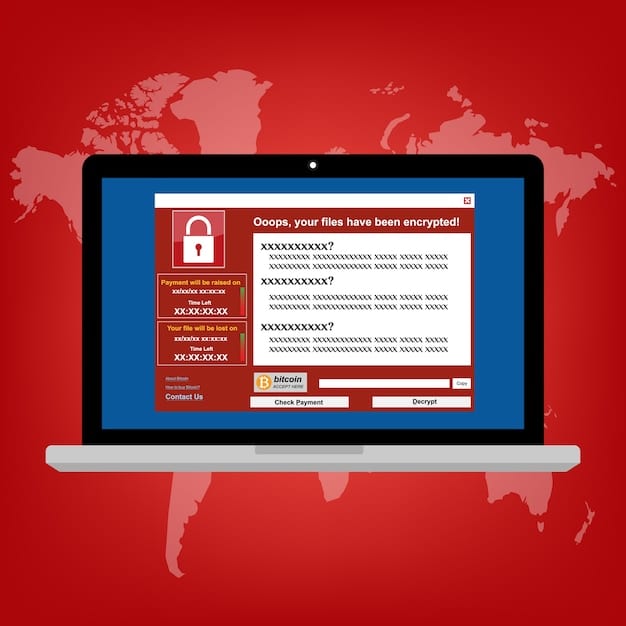Unlock Hidden Content: A 2025 Guide to US Streaming VPNs

Advertisements
Unlock Hidden Content: A 2025 Guide to Using US Streaming Service VPNs Legally explores how US residents can legally bypass geo-restrictions on streaming platforms using VPNs, highlighting the benefits, legal considerations, and best VPN choices for accessing region-locked content.
Want to unlock a world of movies and shows not available in your region? Unlock Hidden Content: A 2025 Guide to Using US Streaming Service VPNs Legally is here to navigate you through the process.
Anúncios
Understanding Geo-Restrictions on US Streaming Services
Streaming services in the US often have different content libraries depending on the region you’re in. This is due to licensing agreements and distribution rights. A VPN can help you bypass these restrictions.
Why Geo-Restrictions Exist
Geo-restrictions are primarily in place because content creators sell distribution rights on a country-by-country basis. This means a show might be available on Netflix in the US but not in Canada, because another network owns the Canadian rights.
Anúncios
How Streaming Services Detect Your Location
Streaming services use your IP address to determine your location. Your IP address is a unique identifier assigned to your device by your internet service provider (ISP). When you connect to a streaming service, it can see your IP address and immediately know which country you’re in.

To bypass geo-restrictions, consider these options:
- Use a VPN to mask your IP address.
- Try streaming services offering global content libraries.
- Check for local streaming options.
In conclusion, geo-restrictions exist due to licensing agreements and your IP address reveals your location to streaming services. By understanding these factors, you can explore solutions to access content from different regions.
The Legality of Using VPNs for Streaming in the US
Using a VPN to access streaming services in the US is a gray area legally. While it’s not illegal in most cases, it can violate the terms of service of the streaming platform.
Is It Illegal to Use a VPN?
In the US, using a VPN is generally legal. However, using a VPN for illegal activities, such as copyright infringement, is still illegal. The act of simply using a VPN to change your IP address isn’t against the law.
Terms of Service Violations
Most streaming services have terms of service that prohibit using a VPN to bypass geo-restrictions. If a streaming service detects that you’re using a VPN, they may block your access to the platform. In some cases, they may even suspend or terminate your account.
Consider these points regarding VPN legality:
- Using a VPN is legal in most countries, including the US.
- Violating terms of service can lead to account suspension.
- Always check the specific terms of the streaming service.
In summary, while using a VPN isn’t typically illegal, it can violate the terms of service of streaming platforms. Always review the terms and conditions to understand the potential consequences.
Choosing the Right VPN for US Streaming Services
Not all VPNs are created equal when it comes to streaming. You’ll want to choose a VPN that is fast, reliable, and has servers in the US.
Factors to Consider
When choosing a VPN for streaming, consider factors like server speed, server locations, security features, and privacy policies. A good VPN should have fast servers in the US to ensure smooth streaming. It should also have strong encryption and a strict no-logs policy to protect your privacy.
Top VPN Recommendations for 2025
Some of the top VPN recommendations for 2025 include ExpressVPN, NordVPN, and CyberGhost. These VPNs are known for their fast speeds, reliable connections, and strong security features. They also have a large number of servers in the US, making them ideal for accessing US streaming services.

Here are some additional tips for choosing a VPN:
- Look for VPNs with US servers.
- Check for fast connection speeds.
- Read user reviews and ratings.
In conclusion, choosing the right VPN involves considering factors like speed, server locations, security, and privacy. Top VPNs for streaming in 2025 include ExpressVPN, NordVPN, and CyberGhost, known for their reliable performance and security features.
Setting Up and Using a VPN for Streaming
Setting up and using a VPN for streaming is usually a straightforward process. Most VPNs have user-friendly apps that make it easy to connect to a server in the US.
Step-by-Step Guide
To set up a VPN, first, choose a VPN provider and sign up for a subscription. Then, download and install the VPN app on your device. Open the app and log in with your credentials. Select a server in the US and connect. Once connected, you can access US streaming services as if you were physically located in the US.
Troubleshooting Common Issues
If you encounter issues while using a VPN, such as slow speeds or connection problems, try connecting to a different server. You can also try clearing your browser’s cache and cookies. If the problem persists, contact the VPN provider’s customer support for assistance.
Consider these tips for setting up your VPN:
- Choose a server close to your actual location for best speeds.
- Clear your browser’s cache and cookies regularly.
- Update your VPN app to the latest version.
In summary, setting up a VPN is generally simple with user-friendly apps. Troubleshooting common issues may involve switching servers or clearing cache. Always ensure your VPN app is updated for optimal performance.
Optimizing Your Streaming Experience with a VPN
Using a VPN can enhance your streaming experience in several ways. It can allow you to access a wider range of content and improve your privacy and security.
Improving Streaming Speed and Quality
A VPN can sometimes improve your streaming speed and quality by bypassing ISP throttling. ISP throttling is when your internet service provider intentionally slows down your internet speed for certain types of traffic, such as streaming video. By using a VPN, you can encrypt your traffic and prevent your ISP from throttling your connection.
Protecting Your Privacy and Security
A VPN can also protect your privacy and security by encrypting your internet traffic and hiding your IP address. This can prevent hackers and other malicious actors from tracking your online activity. It can also protect you from government surveillance and censorship.
To optimize your streaming experience, consider these steps:
- Use a VPN with fast servers and low latency.
- Choose a VPN with strong encryption and a strict no-logs policy.
- Connect to a server that is optimized for streaming.
In conclusion, optimizing your streaming experience with a VPN involves improving speed and quality by bypassing ISP throttling, and protecting your privacy through encryption. Selecting a VPN with fast servers and strong security measures is essential for an enhanced experience.
Future Trends in VPNs and Streaming
The future of VPNs and streaming is likely to be shaped by technological advancements and changing consumer habits. Expect more sophisticated VPN technology and increased integration with streaming services.
Advancements in VPN Technology
VPN technology is constantly evolving. Expect to see advancements in areas like speed, security, and ease of use. New VPN protocols may emerge that offer faster speeds and stronger encryption. VPN apps may also become more user-friendly and intuitive.
Impact of Changing Streaming Landscape
The streaming landscape is also constantly changing. Expect to see more streaming services emerge and increased competition for viewers. This may lead to more geo-restrictions and more aggressive enforcement of terms of service. As a result, VPNs may become even more important for accessing the content you want.
Look out for these future trends:
- AI-powered VPN features.
- Integration of VPNs into streaming apps.
- Enhanced focus on privacy and security.
In summary, future trends in VPNs and streaming include advancements in VPN technology, such as AI-powered features and enhanced security. The changing streaming landscape could also lead to greater VPN integration within streaming apps, emphasizing privacy and accessibility.
| Key Point | Brief Description |
|---|---|
| 🌍 Geo-Restrictions | Licensing agreements cause content variations by region. |
| ✅ VPN Legality | Using a VPN is legal but can violate streaming services’ terms. |
| 🛡️ Security | VPNs encrypt data, protecting privacy and bypassing ISP throttling. |
| 🚀 Future Trends | Expect AI-powered VPNs integrated into streaming platforms. |
▼
Generally, using a VPN itself isn’t illegal in the US, but it might violate the terms of service of specific streaming platforms. This could result in account suspension if detected.
▼
Streaming services identify VPN use by detecting IP addresses commonly associated with VPN servers. They maintain lists and block these IPs to enforce geo-restrictions.
▼
Yes, a VPN can sometimes improve streaming speed by preventing your ISP from throttling your bandwidth based on content type, leading to a smoother viewing experience.
▼
Look for VPNs with fast US-based servers, strong encryption, a no-logs policy, and compatibility with multiple streaming services to ensure reliable and secure access.
▼
While some free VPNs exist, they often have limitations like slower speeds, data caps, and fewer server locations. Paid VPNs generally offer a better, more reliable streaming experience.
Conclusion
In conclusion, understanding the ins and outs of using VPNs for US streaming services in 2025 is crucial for accessing geo-restricted content legally and safely. By choosing the right VPN and staying informed about the evolving legal landscape, you can unlock a world of entertainment while protecting your privacy.





